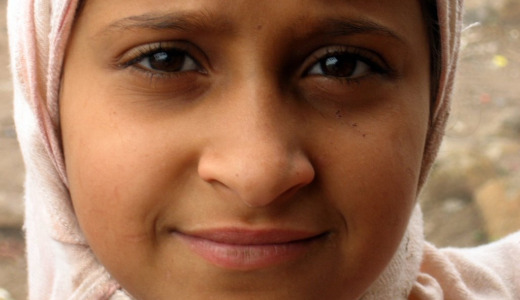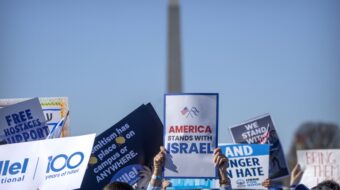
The 23-year-old Nigerian who tried to blow up an airplane approaching Detroit on Christmas Day was sent on this mission by a group in Yemen known as Al-Qaeda in the Arabian Peninsula, according to a statement issued by the group.
Umar Farouk Abdulmutallab, son of a member of Nigeria’s wealthy elite, had spent several months in Yemen and reportedly said he was trained by al-Qaeda there.
So now, Yemen has become a new public focus of U.S. anti-terrorism concerns.
What should we know about Yemen in order to consider how our country should respond?
Here are a few things: strategic location, oil, a Very Important Neighbor, imperialism and Cold War history, poverty and economic/environmental crisis.
Location, location – and oil
Yemen occupies a highly strategic location at the tip of the Arabian peninsula, where the Red Sea, Arabian Sea and Indian Ocean meet in the Gulf of Aden. This is one of the world’s most active shipping lanes, in particular for transport of oil. Yemen is directly opposite Somalia, Djibouti and the Horn of Africa.
Through the Bab el Mandeb Strait, which joins the Red Sea and the Gulf of Aden, about 3 million barrels of crude oil are shipped daily. Enough said.
Very Important Neighbor
You can’t talk about Yemen without paying attention to its weighty next-door neighbor Saudi Arabia. The Saud family dynasty, enforcing an extreme reactionary brand of Sunni Islam, has ruled that country since the British essentially anointed them in the 1920s. The U.S. formed a strategic relationship with the Saudi monarchy in the 1940s when oil was discovered there and the U.S. was taking over as the dominant imperialist/capitalist power in the Mideast. That relationship continues to this day. The Saudi regime, the world’s biggest oil producer, and also armed to the teeth, is one of the world’s most repressive. It is believed to be highly concerned about opposition movements from both the more extreme right (note the name “Al-Qaeda in the Arabian Peninsula”) and democratic-oriented groups.
Saudi Arabia provides billions in aid to the Yemeni government. Recently the Saudis have conducted missile attacks on a bordering area in northern Yemen to help suppress an uprising among the largely Shiite Houthi population there.
Imperialism and Cold War history
North Yemen was part of the Ottoman Empire and became independent in 1918. It was long run by an Islamic theocracy, which was overthrown in 1962 when the Yemen Arab Republic was formed.
In southern Yemen Britain took over the key port of Aden in the 19th century and set up a “protectorate.” It withdrew in 1967 after a popular uprising. Three years later, a socialist-oriented People’s Democratic Republic of Yemen was established in South Yemen.
Years of conflict ensued, with the U.S., Britain and Saudi Arabia all engaged in the Cold War policy of trying to stamp out socialism in South Yemen, as elsewhere. In the North, Saudi Arabia, among others, tried unsuccessfully to bring back the monarchy.
In the 1980s, Marwan Bishara, senior political analyst at al-Jazeera, notes, “tens of thousands” of young Yemenis were recruited to fight the Soviet Union in Afghanistan in the CIA covert war. When they returned home many joined local extremist religious groups.
Following the collapse of the Soviet Union, the north and south were unified as the Republic of Yemen in 1990. The new Yemeni government, headed since that time by the current president, Ali Abdullah Saleh, proceeded to carry out the International Monetary Fund’s “structural adjustment” prescriptions.
Poverty and economic/environmental stress
Today Yemen is one of the poorest countries in the Arab world, with about 40 percent of its 24 million people unemployed. Its economy is heavily dependent on declining oil resources.
A country a little bigger than California, only 3 percent of its land can support agriculture. Water shortage is at crisis levels. In addition, the cultivable land is being depleted due to overgrazing, soil erosion and desertification.
Reporter Laura Kasinof, writing in the Christian Science Monitor Nov. 5, quotes Yemen’s water and environment minister as saying the water crisis and increasing strife and extremism are related.
“They manifest themselves in very different ways: tribal conflicts, sectarian conflicts, political conflicts,” the minister said. “Really they are all about sharing and participating in the resources of the country, either oil, or water and land.” Some researchers from Sanaa University, he said, found that “70-80 percent of all rural conflicts in Yemen are related to water.”
War and anti-terrorism
U.S. military presence in the area ratcheted up following the demise of the Soviet Union. It stepped up military involvement in Yemen following the bombing of the USS Cole in 2000.
For the past few years, in addition to the revolt in the north, the Yemeni government has been battling a rebellion in the south, where its oil fields are located. Discontent over poverty and inequities is reportedly a factor. Some reports say right-wing religious and tribal elements are involved. It is alleged that al-Qaeda is operating there.
How much of a role does the shadowy al-Qaeda really play in Yemen? Yemen scholar Gregory Johnsen says al-Qaeda has long relied on Yemen as a refuge but has beefed up its organization there in recent years. In particular, Johnsen said in a Dec. 24 Salon interview with Glenn Greenwald (the day before the airliner incident over Detroit), “In January of 2009, they moved from being what you could call a local chapter of al-Qaeda just based in Yemen, into more of a regional franchise.” In his view, “the real danger that they present right now is not just in Yemen, but using Yemen as a launching pad for attacks throughout the region.”
In line with this view, U.S. military involvement in Yemen has escalated in the past several months, including a direct or indirect role in cruise missile strikes last month.
However, Johnsen cautioned that there is a wide spectrum of people in Yemen who are political Islamists, and it’s a big mistake to lump them together as “al-Qaeda.”
There are “a number of people who view Islam as a political matter and who, at least in the West, it would be very easy to look at them, and they look like al-Qaeda and they sort of say many of the same things that al-Qaeda says, but they’re not necessarily al-Qaeda,” he said. “And in Yemen, al-Qaeda only occupies one point along this spectrum.”
It is unclear what other political forces may be promoting al-Qaeda globally. Some believe al-Qaeda’s numbers in Yemen are small. Nevertheless, the Detroit incident appears to have demonstrated their ability to create global havoc and perhaps another 9/11-type tragedy.
The question is, however, what to do about it.
Military air strikes like the ones the U.S. seems to be relying on, which almost always cause innocent civilian death and destruction, are “very, very counterproductive,” Johnsen said. Any use of military strikes to eliminate al-Qaeda, in his view, has to come “at the end of the process, when al-Qaeda has been isolated from the population, when its rhetoric has been discredited, not at the beginning of the process, when al-Qaeda members are still seen as pious individuals defending their faith.”
Further, Johnsen warned against a single-minded focus on al-Qaeda.
“Over the past several years U.S. policy toward Yemen has been a dangerous mixture of ignorance and arrogance,” he said in a Harper’s interview published Jan. 7. “The main issue that I have with U.S. foreign policy in Yemen is that it focuses exclusively on Al Qaeda to the exclusion of all the other challenges that the Yemeni government faces. You can’t deal with the Al Qaeda problem in Yemen in isolation, viewing the country solely through the prism of counterterrorism. You have to deal with Yemen as it exists, as a totality, as an entire entity.”
Similarly, Bishara warned in his al-Jazeera column, “With half of the population illiterate or living under the poverty line and one third unemployed, any attempt at a military solution could only exacerbate an already untenable situation.”
Photo: http://www.flickr.com/photos/aiace/ / CC BY 2.0

MOST POPULAR TODAY

Zionist organizations leading campaign to stop ceasefire resolutions in D.C. area

High Court essentially bans demonstrations, freedom of assembly in Deep South


Afghanistan’s socialist years: The promising future killed off by U.S. imperialism

Communist Karol Cariola elected president of Chile’s legislature






Comments